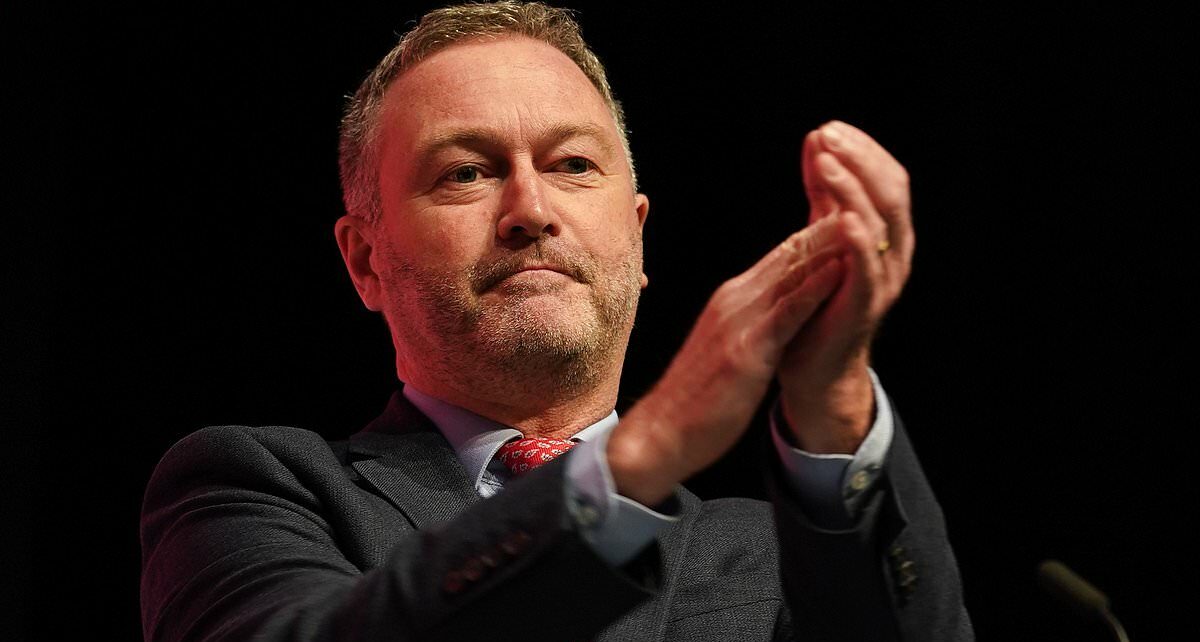Labour insists it will reinstate the 2030 ban on new petrol and diesel cars after the government announces a five year delay
- READ MORE: ‘The flak won’t stop me doing what’s right’: Rishi Sunak takes on eco-zealots in a bold move that could transform Tory fortunes and save families up to £15,000 as he hits the brakes on the race to Net Zero
Labour said last night it would reinstate the 2030 ban on new petrol and diesel cars after Rishi Sunak announced a five year delay.
Shadow environment secretary Steve Reed suggested it would give certainty to business and lower costs for households.
He told Sky News: ‘We would keep that at 2030 because that’s what businesses have been investing for, that’s what business expects, that’s how we can meet net zero – but its also how we can lower the fuel costs for households who have cars and need to drive away.
‘Rishi Sunak is stuck in the past here, he wants to keep household bills high and he wants to stop the investment for the new jobs that would pay the good, secure wages of the future.’

Steve Reed said the decision to keep the 2030 aim in place would give businesses certainty

Rishi Sunak delivers a speech during a press conference on the net zero target, at the Downing Street Briefing Room, in central London, on September 20, 2023
Mr Reed criticised Mr Sunak’s announcements as ‘chaos’, and said he was ‘selling out the biggest opportunity of the 21st century – and that is for Britain to lead the world in the transition to a new green economy’.
READ MORE STEPHEN GLOVER: Rishi Sunak is under attack from Labour, the BBC and the Blob, but this is by far the most daring thing he has done as Prime Minister
However, he suggested Labour would stick with the Government’s plan to slow the phasing-out of gas boilers, saying his party would not ‘put people’s bills up’.
Mr Reed’s comments came after heavy hints from two fellow shadow cabinet ministers that Labour would undo the change.
Ed Miliband, the party’s net zero spokesman, accused Mr Sunak of loading ‘more costs onto the British people’.
‘Delaying the phase out of petrol and diesel cars will add billions in costs to families and damage investor confidence in the UK, as we have seen from the furious business reaction today,’ he said.
‘This is a Prime Minister who simply doesn’t understand and cannot grasp for Britain the opportunities for jobs and our economy of driving forward with action on clean energy.’
And shadow transport secretary Louise Haigh said: ‘The threat to investment in our automotive industry is the chaos created by the Tories at a time when the sector is crying out for certainty.
‘The Conservatives might be happy to kick the legs out from underneath the car industry, but Labour would back the sector all the way.’
But the Tories last night called for clarity as they urged Sir Keir Starmer to ‘come clean on his green plans’.
A Conservative source told the Mail: ‘The Prime Minister’s been honest about the trade-offs households face, and has set out a fair plan that protects families’ budgets and our net zero commitments.
‘Instead of playing politics, Sir Keir needs to come clean on his green plans and what they would mean for families and firms.’

Mr Reed suggested Labour would stick with the Government’s plan to slow the phasing-out of gas boilers, saying his party would not ‘put people’s bills up’ (Stock Image)

The government pledged to ‘scrap policies to force landlords to upgrade the energy efficiency of their properties, but instead continue to encourage households to do so where they can’ (Stock Image)
Earlier this year, ex-Labour PM Sir Tony Blair warned that the British public should be spared doing a ‘huge amount’ to tackle climate change.
He told the New Statesman: ‘Don’t ask us to do a huge amount when frankly whatever we do in Britain is not really going to impact climate change.
‘The number one issue today – and this is where Britain could play a part – is how do you finance the energy transition?
‘Because, basically, the developed world’s emissions are going down, but the developing world’s are going up. These countries have got to grow, so how do you finance the transition? Secondly, how do you accelerate the technology?’
Source: Read Full Article
